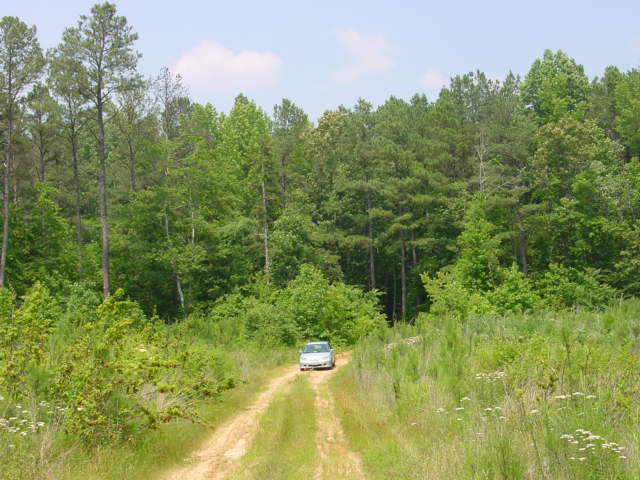
Above is a picture of part of my forest in Virginia, my 178 acres of private landowner contribution to the world’s forests. The picture is from 2006. the litte trees in the front are much bigger now. They grow up so fast.
Today I had the usual meetings and paperwork, but mostly I caught up on my reading. I found an interesting article on Iraq but I promised myself not to think only about Iraq. And a good news article about trees puzzled me. According to the report, developing countries are leading that way in planting trees. They evidently planted a billion trees last year. UNEP spokesman Nick Nuttall speculates “… they more intimately understand the wider benefit of the forests from stabilising water supplies and soils up to their importance as natural pharmatives as well as the importance of trees in combatting global warming.” How nice and PC. What was puzzling about this was that I remembered that Southern U.S. landowners plant more than a billion trees EVERY year and it does not make the news at all. I found out that the U.S. produces around 1.6 billion seedlings a year – every year.
When you look at the big picture you have to wonder why something is so extraordinary in some places and routine in others. How best to make it routine worldwide? The key but prosaic explanation is private property rights. In twelve southern states we routinely, every year, plant a billion trees and because somebody owns them. If the what the UNEP guy says about that intimiate understanding in developing countries is true, you have to wonder how they got in that treeless mess in the first place.
It is also one thing to plant the trees and quite anther to be ABLE to protect them. Big PR events and passionate speeches are great theater, but the best way to protect forest resources is through the protection of property rights. That is because when all the speeches are done, the party is over and the activists have moved on to the next cause, if you have property rights somebody still cares intensely and personally about each acre of trees. It is no coincidence that the worst cases of predatory logging occur on lands that are publicly or communally owned or where property rights are not well respected. It is a classic case of the tragedy of the commons coupled with the predatory mentality of transient firms, the cupidity of bureaucrats and the corruption of governments.
Property rights, protected by the rule of law, are crucial to the most kinds of progress. If you look at a list of the most pleasant and prosperous countries of the world, they vary in terms of types of governments, ideology, geography and culture. What they all share in common is that every pleasant and prosperous place protects property rights.
Strong property rights protect forests, human rights and other living things. I know this goes against some conventional TV-inspired wisdom, but it is clearly the case. That is not only the experience of the southern pine states, but also of the U.S. in general as well as Europe, Australia and other countries with strong property rights protection.
Lest somebody make the extrapolation, protecting property rights to private forest land does NOT preclude the establishment of public parks or preserves. In fact, it enhances it. You can logically set aside special places that need to be protected only if don’t declare everything special. When everything is special, nothing is special and any talk or protection is just talk and no more. Many corrupt countries have on their statute books beautiful and comprehensive laws to protect natural resources, but you cannot find these rules manifest anywhere on the ground.
In fact, I have noticed that in general the very best sounding laws are in places where the rule of law is not protected. They can enact what they want, because they know they will not have to carry it out.So protect forest property rights and enforce the rule of law and you will have forests now and forever. It will not have the same PR impact, but it will ensure forests for today and tomorrow.
As for the new tree planters, keep it up. Make it a routine so that it doesn’t even get noticed by the media. A word of advice to the UNEP and the governments involved in this noble endeavor. If you want those seedlings to grow to be healthy mature trees, make sure you protect the property rights under them.
